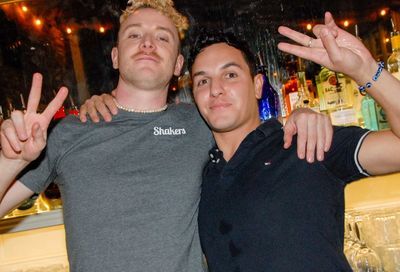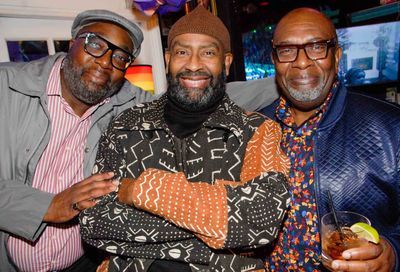Jackson's Last-Minute Effort
On eve of marriage equality in the District, anti-equality activists ask Supreme Court to block implementation of law and stop gay marriages
Bishop Harry Jackson, along with others opposed to marriage equality coming to Washington, filed a last-minute request at the U.S. Supreme Court on Monday, March 1, seeking to stop the Religious Freedom and Civil Marriage Equality Amendment Act of 2009 from becoming law on March 3 so that he can proceed with his referendum effort.
Lawyers for the District responded on March 2, writing the case was not at a procedural point when the Supreme Court should take the case, it was not the type of case the Supreme Court hears, and – even if the Supreme Court did consider the matter – Jackson would not succeed on the merits of the case.
Aided by lawyers from the national organization Alliance Defense Fund, Jackson filed a request for an immediate stay of the law with Chief Justice John Roberts, who is responsible for hearing appeals coming from the District. Roberts has the ability either to make the decision himself or to turn the matter over to the full court for a decision.
If Jackson’s request were granted, the stay would halt the effective date of the marriage law – putting off marriage equality until the full Supreme Court could resolve the underlying issues Jackson has presented to it.
As with the multiple attempts before the D.C. Board of Elections and Ethics, D.C. Superior Court and the D.C. Court of Appeals, Jackson and opponents of marriage equality argue to the Supreme Court that the D.C. City Council overstepped its authority more than three decades ago when it passed the Initiative, Referendum and Recall Procedures Act (IPA).
The IPA prohibits a referendum and initiative that would have the result, if passed, of violating the D.C. Human Rights Act. The ADF lawyers argue that this limitation is a violation of the D.C. Charter. Every court to have considered this argument during the course of the litigation over marriage equality in the District – with regard to either the referendum or the initiative attempt – has rejected it.
Moreover, in this situation, Jackson is asking for a stay by the Supreme Court, which requires several additional steps be met beyond the argument about the IPA itself. Chief Justice Roberts would need to first make a determination that the Supreme Court is likely to take the case. As The New York Times noted in September 2009, the Supreme Court only “selects perhaps 80 cases from more than 8,000 requests for review it receives every year.”
The District argues that the Supreme Court should not grant the stay because the D.C. Court of Appeals has not yet decided the underlying IPA issues at dispute, making it an inappropriate case for the Supreme Court to take at this time. The District also argues that the Supreme Court “defers substantially to an interpretation of District law by the District’s local courts.”
Finally, Jackson needs to show that his interests would “irreparably harmed” if the Supreme Court does not grant the stay to allow the referendum to go forward. The attempt at an initiative – already in court – would remain available to opponents of marriage equality after March 3, a point that is argued by the District although Jackson attempts to make the argument that the two are not interchangeable.
The District also argues that the stay sought by Jackson – a stay as to the effective date of the law – is actually irrelevant because the referendum period ends when an act becomes law, not when it becomes effective. The District’s lawyers further argue that the entire legislative process would need to be stalled to keep the bill from becoming law in order for Jackson’s stay to have its intended effect of allowing the possibility of a referendum to continue past March 3. And that, they conclude, is a position that has no support in the ADF filing or in law, so far as the District’s lawyers were aware.
Although such actions are rarely granted by the Supreme Court, the justices did take such an action when the court stopped U.S. District Court Judge Vaughn Walker’s order permitting cameras to display the trial challenging the constitutionality of California’s Proposition 8.
Come back to Metro Weekly for more updates about this case and the anticipated marriage equality changes in the District this week, including coverage of the March 3 availability of marriage licenses for same-sex couples in the District.
Support Metro Weekly’s Journalism
These are challenging times for news organizations. And yet it’s crucial we stay active and provide vital resources and information to both our local readers and the world. So won’t you please take a moment and consider supporting Metro Weekly with a membership? For as little as $5 a month, you can help ensure Metro Weekly magazine and MetroWeekly.com remain free, viable resources as we provide the best, most diverse, culturally-resonant LGBTQ coverage in both the D.C. region and around the world. Memberships come with exclusive perks and discounts, your own personal digital delivery of each week’s magazine (and an archive), access to our Member's Lounge when it launches this fall, and exclusive members-only items like Metro Weekly Membership Mugs and Tote Bags! Check out all our membership levels here and please join us today!






















